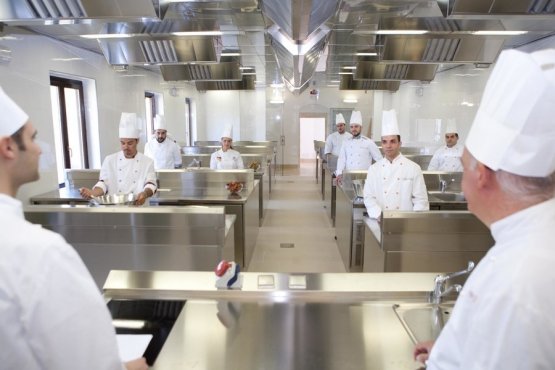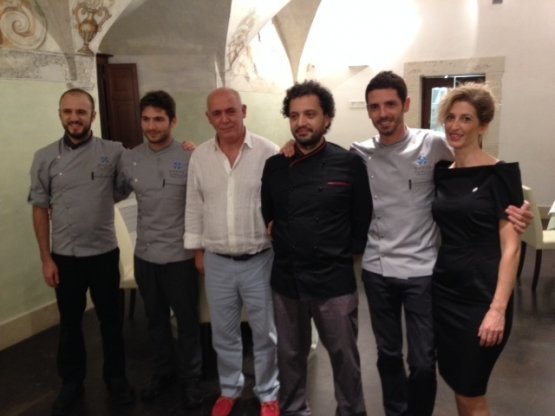Few things are born by chance. Should you ask Peppe Barone, master of Sicilian cuisine, why should one focus on quality-products, chefs, restaurants in the Ragusa-Modica-Noto triangle and the nearby territories, he would answer that there are historic reasons: these were the areas of the enfiteusi, where the farmer was obliged to improve the fields, so he worked with greater commitment, produced the best, because it was in his interest, and therefore a flourishing agricultural and food sector developed. This was not the case elsewhere, for instance between Palermo and Enna, where extensive large estates dominated.
If you try to ask the same questions to those who are passionate about this beautiful gastronomic oriental Sicily, the answer will be different. That is to say, they will add something important: «…besides, the great merit goes to Barone», who since thirty years ago has been valorising the island’s excellent products. His lesson runs in the blood of Pino Cuttaia and Carmelo Chiaramonte, Ciccio Sultano and Accursio Craparo. Nevertheless, he pushes the laurels away, he loves to work behind the scenes with a humility that makes one feel grateful, cutting for himself the role of “gastrosofo” (the definition is his own) quoting the territory though in a re-interpreted way, without turning into a professor.

The school’s "classrooms". A maximum of 16 pupils are admitted in each session
Or perhaps he does. Because now that he’s 54,
Barone continues down this road by supervising the kitchen of
Fattoria delle Torri in his hometown Modica, where you can taste de-structured
arancini or
pasta alla Norma. But even more so by cultivating his vocation for spreading culinary knowledge inside
Nosco, the Scuola Mediterranea di Enogastronomia, a reality that is almost as beautiful as the building in which it is located, the 16th century Antico Convento dei Cappuccini inside the gardens in Ragusa Ibla.
Barone is its soul, he’s in charge of directing the institute, which opened one and a half year ago after a seven-year-long gestation during which inspired bishop Paolo Urso – the ownership of the structure belongs to the Dioceses and to Fondazione San Giovanni Battista – tried to launch a project and he finally made it putting the expert chef at the helm. Five tutors for sixteen students, 32 graduates in the two already completed sessions while the third one has started, 4 months of study plus 3 of internship in an outside structure, but after the first 45 days of foundation course one ends up cooking inside the training restaurant Cenobio, located inside the same building as the school.

Group photo for Peppe Barone and his main collaborators. Left to right: Giuseppe Venezia, chef at the training restaurant Cenobio, sous chef Ettore Moliteo, the school’s director Peppe Barone, one of his previous students, Davide Cicciarella, now an intern at Cenobio, Giovanni Galesi, chef and tutor at Nosco, and collaborator Anna Nicastro
Barone explains: «We teach to acquire awareness of our gastronomic heritage; in other words, we offer a general method, so that in the end each territory can be transformed into “territories”, plural, those of the students». The first lesson is held by an ethnologist, underlining the importance of the recovery of oral tradition; the great celebrated chefs only arrive at the end of the course, «because they are not the masters of creativity, the initial example. You first learn to cook, then to surprise too».
Meanwhile, the quality of the dishes served at
Cenobio is surprising. Here
Barone is helped by young collaborators such as
Giovanni Galesi and
Peppe Venezia. The
Gazpacho with blue fish meatballs and fried leeks and the
Pastratedda (an ancient pasta for the poor)
with langoustine bisque and lime are excellent. But we were even more intrigued by the idea of the
Baccalà with crocchè and almond mousse …